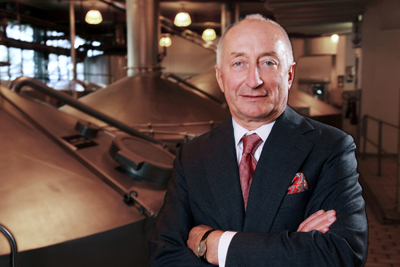SABMiller shareholders miffed over “excessive” pay to executives
Earlier last week, the UK-based Pension Investment Research Company (PIRC) opened the flak on SABMiller by issuing a statement saying that shareholders should reject the company’s "excessive" levels of executive pay at the AGM.
Bonuses of 500 percent of base salary are too high, PIRC said, with the minimum performance targets attached to the incentive schemes not stretching enough.
The re-election of a number of non-executive directors should also be rejected as they are not considered independent, PIRC said in its statement.
PIRC was adamant that Miles Morland, Cyril Ramaphosa and Robert Fellowes have been on the board for too long.
Besides, PIRC thought Geoffrey Bible, the nominee of Altria Group, with 27 percent the group’s largest shareholder, and Messrs Perez Davila and Santo Domingo Davila – the nominees of the Santo Domingo Group, the company’s second largest shareholder – too biased in their interests to serve as independent board members.
PIRC did not even refrain from attacking SABMiller’s Chairman Meyer Kahn. It said that shareholders should abstain on the re-election of Mr Meyer Kahn. As a former chief executive who has served on the board for more than nine years, PIRC did not deem him independent any longer.
Other institutional shareholders commented that they would rather have a good director who is not independent, than an independent director who is incompetent. Why should someone of Mr Meyer Kahn’s experience of the beer industry be forced to leave, they asked?
In the end, the board elections at the AGM went according to plan.
SABMiller also said that Howard Willard, Executive Vice President, Strategy and Business Development at Altria Group, will join the board as a non-executive director, effective 1 August 2009. Mr Willard has been nominated under the terms of an agreement with Altria (the re-invented Philip Morris company and former owner of Miller Brewing) as part of the Miller Brewing Co. transaction in 2002.
However, there was a significant sign of displeasure from shareholders at the AGM when it came to the proposal to approve directors’ pay. In all, SABMiller paid GBP 10.6 million to its directors, with the two executives — Graham Mackay and Malcolm Wyman — getting a total compensation of GBP 9.6 million.
Usually, these sorts of resolutions are waved through by 99 percent of the shareholders. But SABMiller’s remuneration proposal only got an 85 percent approval rate — a notable enough censure to worry the board.
All this might seem to be an unnecessary fuss created over a company that produced an EBITA of USD 4.1 billion during its financial year 2009 ending March 2009.
But the quarterly results for the three months to June, released on 31 July, were described by analysts as a “mixed bag” that did not sway shareholders.
Beer sales hardly moved overall, with a 7 percent drop in Europe, a 2 percent fall in South Africa and flat sales in Latin America — showing that SABMiller’s momentum as an emerging-market beer giant has slowed markedly.
Thankfully, sales were up 17 percent in China, which saved SABMiller some blushes.
Nevertheless, there is concern that sales have stalled in SABMiller’s other growth markets.
Within its European portfolio, three markets — Poland, Czech Republic and Romania — generate 85 percent of total earnings. This means Russia, Hungary, Italy, Holland, Slovakia and the Canary Islands are under pressure.
According to the stock market, SABMiller’s shareholders were underwhelmed by the results. SABMiller’s shares fell 0.7 percent in London on 31 July after the trading update — and days after analysts at the Royal Bank of Scotland downgraded SABMiller’s shares to a “sell” from a “hold”.


